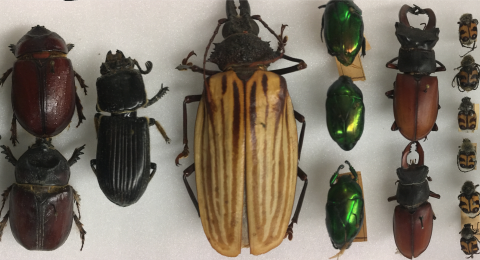The UNHC endeavor to provide full, open, and equal access to collections, including associated data. Members of the public are allowed supervised access to conduct specific research or to participate in prearranged educational tours.
Visit in Person
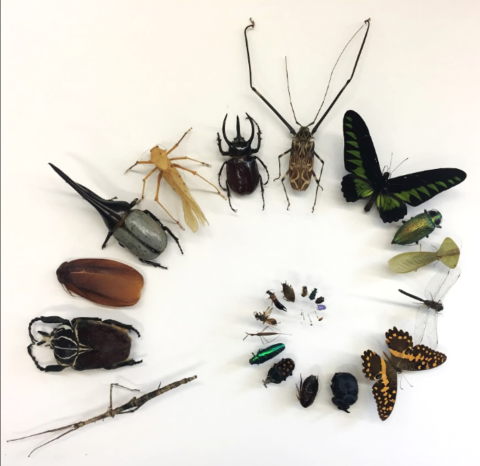
With 1 million described species Insects represent 50% of all life forms on Earth.
The Entomological Collection is accessible for visitors Monday to Friday from 9 am to 5 pm by appointment in room 271 on the second floor of the Spaulding Life Science Building. No food may be brought into the facility.
Contact the Collections Manager, István Mikó (im1060@unh.edu), to arrange for your visit.
Online access
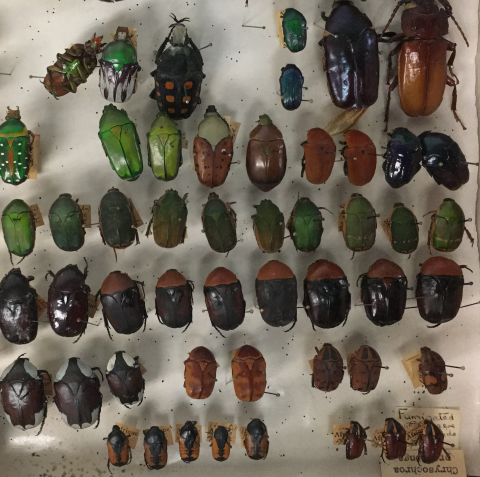
Of the more than 700000 specimens at UNHC, only a small portion (17000 bees) have been digitized on a specimen level. As part of three NSF supported digitization efforts (Terrestrial Parasite Tracker, North American Lepidoptera and North American bees), we will digitize, describe, and provide access to almost 80000 pinned and slide-mounted insect specimens in the next 3 years. Our specimen-based online portal is available from SCAN.
You can browse OTU's from New England localities using our occurrence database.
Loan Policy
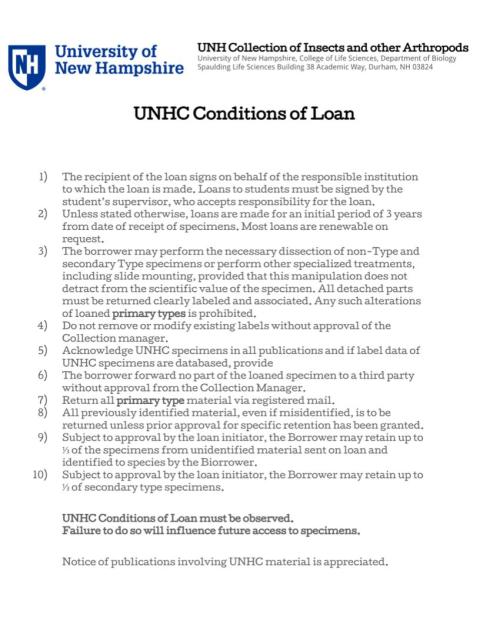
Acquisitions of collections objects
Only objects that meet the following criteria are eligible for acquisition:
1. Specimens are consistent with the collection goals and scope of the Collection as stipulated in this Collections Management Policy document.
2. The provenance of the specimens is adequately documented, and the donor/conveyor can demonstrate that the specimens were collected legally.
3. The donor/conveyor declares full and clear legal title or the right to transfer full and clear legal title of the collections and all associated materials offered.
4. Adequate scientific documentation accompanies the objects(s) and/or the objects that offer extraordinary value for the Teaching and Outreach collections.
5. Sufficient physical, personnel, and monetary resources are available to care for the specimens once they are accepted. UNHC will not acquire objects for which it is unable to provide adequate space, financial resources for care and conservation, and appropriate staff.
6. The objects are not encumbered with unusual conditions set by the donor/conveyor.
Before the acquisition of an object, UNHC has the responsibility to ascertain from the circumstances surrounding the transaction, or knowledge of the specimen’s or collection’s provenance, that it was not stolen or wrongfully converted, and that it is not illegally present in the United States. The Collection also has the responsibility to ascertain that any proposed new acquisition was not unethically acquired from its source, unscientifically documented, or illegally removed from its country of origin.
The Collection will obtain a signed Deed of Gift (and/or other relevant legal documents) from a donor whenever any objects are received for accessioning from outside COLSA. This ensures that the donor is giving the objects to the Collection irrevocably and unconditionally and that the donor owns and has acquired the objects legally. When the donor-signed Deed of Gift form is returned, the official accession forms and an acknowledgement from the Curator will be generated and copies sent to the donor.
Appraisals required for tax deduction purposes are the responsibility of the donor. Collection and affiliated staff will not provide appraisals.
The collection, importation, exportation, and interstate shipment of many kinds of specimens may be regulated by state, federal, and foreign statutes. The Federal laws involved include, but are not limited to, the Lacey Act, the Endangered Species Act of 1973, as amended, the Convention on International Trade in Endangered Species of Wild Flora and Fauna, and the Antiquities Act. The Curator and Collections Manager are responsible for assuring compliance with these laws and regulations and for informing Collection staff about these issues. Specimens collected under permits with restrictions—for example, if primary types must be deposited in the country of origin—must be labelled accordingly.
The UNHC serves as the primary repository for (a) arthropod specimens that result from research conducted in the COLSA. Voucher specimens must meet the general criteria for acquisition and acceptable provenance described above, and specimens must be prepared and labelled properly.
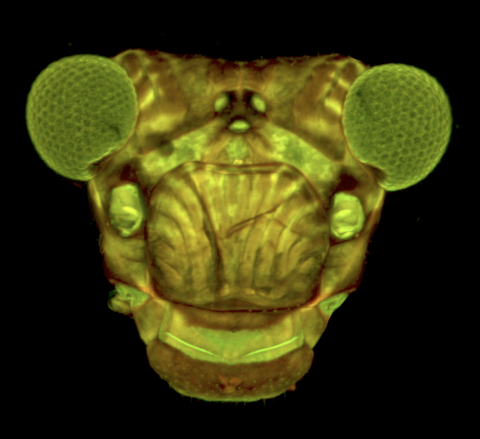
CLSM micrograph of the head of a Psocoptera.
